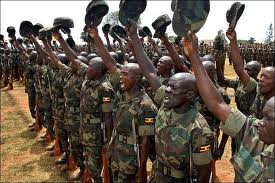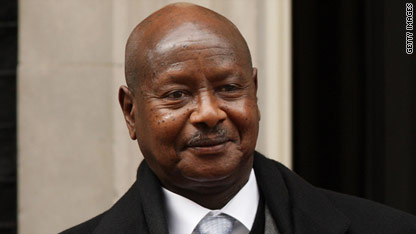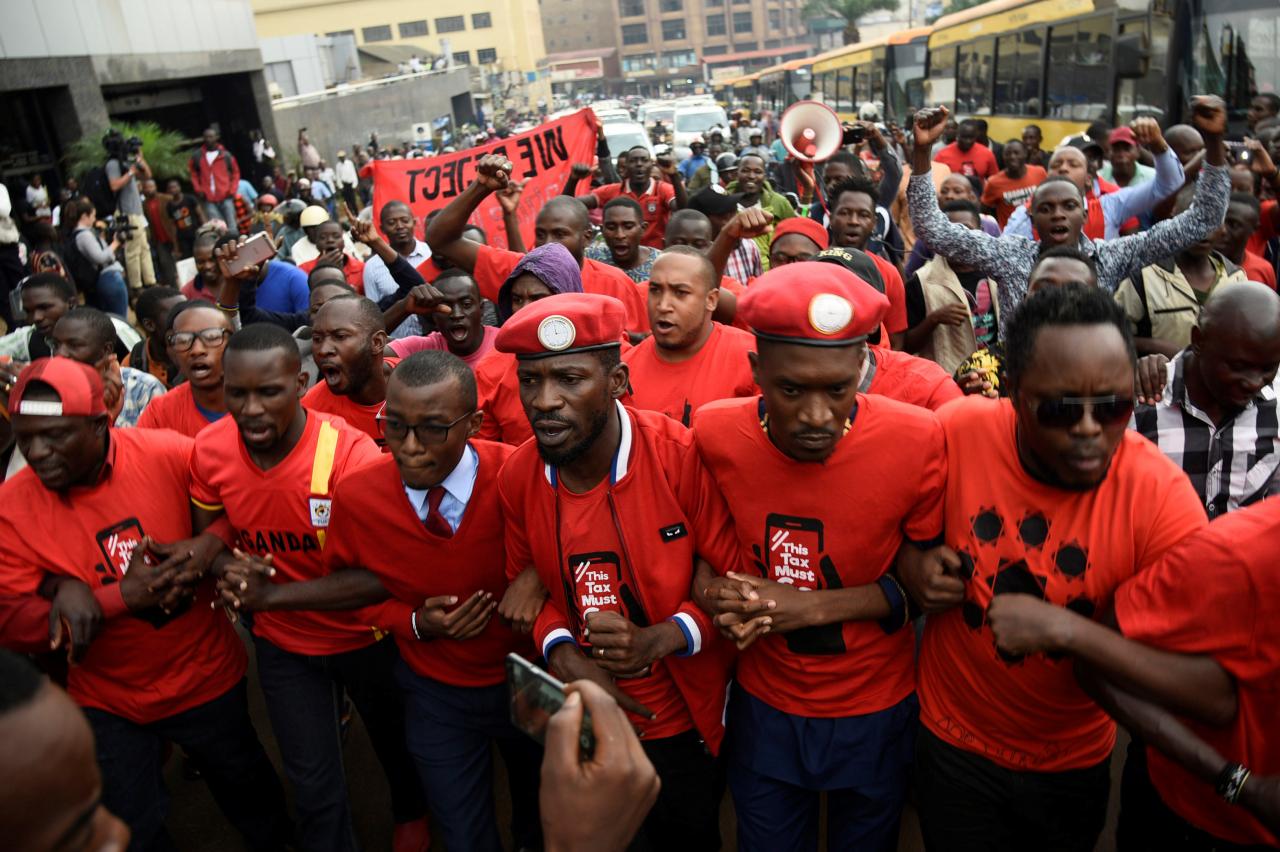A central question in the just published memoirs of William Pike, the former ( founder) head of New Vision Publishing Corporation had little to do with journalism. Even though Pike, a patrician ex-labor party organizer whose father spent most of his life in Tanganyika (now Tanzania) as a colonial officer does tackle in revealing detail the relationship between the National Resistance Movement and the press over time. Pike’s own career as an idealistic writer who, in a sense, followed his father’s footsteps into Africa and into a world that transformed in their lifetime speaks volumes about this memoir and about the politics of change in the two generations since independence.
At the cusp of the NRA victory in 1985 after a rollercoaster of encounters with the rebel organization and its leader Yoweri Museveni – his brother Salim Saleh ( now a general and retired) asks in Masaka “ is this the revolution? “ I think Yes is the answer, however Uganda and Museveni are perceived today” says Pike in conclusion. The book he says should be read as a historical document. I agree.

There is material here that speaks from a time and place of hope in the violent struggle to stabilize Uganda after the chaos of the late 60s, 70s and early 80s. As a witness and a writer Pike kept meticulous notes and the encounters of individuals within the NRA who have long become well known public figures for other reasons will stand out as a close up of how much the NRA in the bush as changed. For me it begun quite early with Pike’s meeting in London of the little-known Mr. Ben Matogo who together with Eriya Kategaya ( both deceased) were responsible for smuggling the journalist behind government lines into the bush. The NRA was made up of a diversity of committed and educated elites who make huge sacrifices at major risk to their lives and that of their families. Since much of the book was written as it happened its innocent descriptions of the characters who later reveal themselves differently in public life is one of the most endearing aspects of the book.
Take this (minor passage) as Pike is being moved outside Kampala ( he has already run into Matayo (Tom) Kyaligonza who we meet as a brave but cruel commander of the elite task force operating a ring around Kampala . “ At about 4pm, we left Task Force in a single file winding our way out of the forest by another path. Perhaps to impress the stranger, the soldiers set off at a blistering pace. “ So, what is your analysis of the miners’ strike” asked a precise voice behind me. The titanic struggle between the National Union of Miners and the Conservative government ( in Britain) was then at its height. The voice behind me belonged to Edward Kale Kayihura, a thin sensitive-looking man with spectacles and a diffident manner. So, we meet the future Gen Kale Kayihura who in the next paragraph addresses and issue that would later dominate his own career: tribalism and ethnicity.
“ The NRA is not tribalist” ( Kayihura says). “ The important thing is that it is national. That it is looking for national policies”. The book is strewn with such insights into the ideas and disposition of characters who we have come to know differently. From Kayihura, Kyaligonza , Ben Matogo to Mugisha Muntu, Paul Kagame, Fred Rigwema, Salim Saleh, Tingyefuza and a cast of so many others. That is of course and Yoweri Museveni whose relationship with Pike and the NRA revolution is a centerpiece of the memoir not because Museveni is a focus of his story but because of his dominating role in the entire affair.
I would go as far as to say the book is an excellent study in how power, the challenges of running a country with the complicated history of Uganda has changed Yoweri Museveni in as much as he has changed the country through the rebel army he started.
When Pike meets Museveni in 1984, he is a 40-year-old rebel leader. They talk the whole day under a tree “ occasionally shifting our seats to avoid the harsh African sun as it traversed the sky”. Museveni he said had a faraway look in his eyes and Pike regardless of how their relationship changed later in the book came to regard him as visionary in his assessment of Uganda and Africa’s challenges. He was also extremely practical and capable of precise analysis. Speaking of the challenge of taking over the country for example he says “ Of course 7,000 ( the area controlled by NRA) out of 93,000 square miles is less than 10 percent of the country. But so what? What is essential in military terms is not control of territory, at least for a liberation army. What is crucial is preservation. If a liberation army is successful in preserving itself and in dismantling the enemy’s strength by killing troops and capturing equipment, by destroying his political image and disrupting his diplomacy, then that army is winning” sounds like a familiar piece of strategic thinking of the man who would then rule Uganda for now 33 years ( now longer than Mobutu Ssese seko who run Zaire for 32).
The Museveni we encounter in these pages is pretty consistent with his public personal ( He does not drink and does not like dancing) later but in retrospect one can see how much more different governing was from fighting. “Museveni turned out to be a military history buff, happy to discuss the Maginot line, Guderians use of massed tanks and Sir John Gort’s foolishness in going on patrol behind enemy lines in the First World War. “ We get our tactics and strategy from reading books by people like Montgomery and Clausewitz. These things are all written down” he says ( he admires Gen Montgomery the most because he has “ a scientific approach to war”.
A moment that stayed with me about this encounter was at the end when after super and in the dark of the early evening lit by a fire – a group of women, Bahima pastoralists start singing praise songs which pike translates from Runyankole. “ I loved and praised them when they were coming with their guns from Masindi/ They brought guns and added them to what they had/They were with their leader, the brave son of Kaguta, coming from battle”.
“Combatants. A memoir of the Bush War and the Press in Uganda” is one of the most important books of historical nonfiction to come out this year from Uganda and in general one of the most readable of its kind. In conclusion I think it also reflects one of the dilemmas of “fundamental changes” (or any other kind of complete makeover, social, political or personal) that is that in being “born again” through struggle or sacrifice, the new person or society becomes another thing, a new life. It is this new life that must now exist separate from its parents or the process of its rebirth. For nations that have been “liberated” or brought to life from circumstances that were darker and forbidding, the new society must be left to define its own destiny based on this reality.
There is a double tragedy when the sins of the father are visited on the son, when the past sticks around and seeks a shared life with the new. This double existence, the bi-polarity in political life where old habits restrain the new is how revolutions fail to take off. For the NRA/M now the question that has hung around is if it can let the future happen with the same confidence and sacrifices that it had when it faced great odds in the Bush. “ Is that the revolution?











Hw much is acopy en where can I get it
Thanks for this review. I’ve enjoyed reading it. I’m yet to read the book, but your almost covers all I would have wanted to read therein.